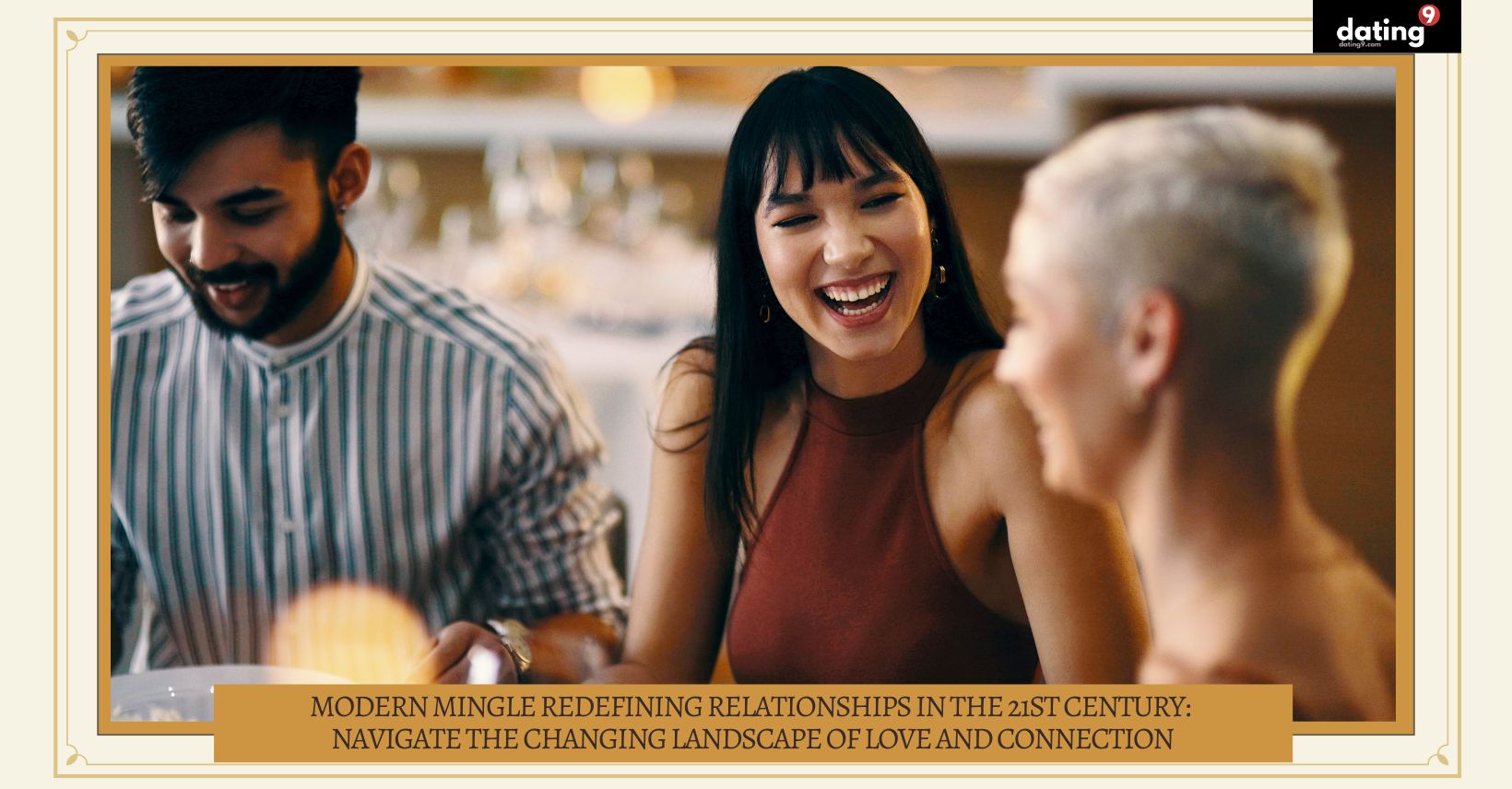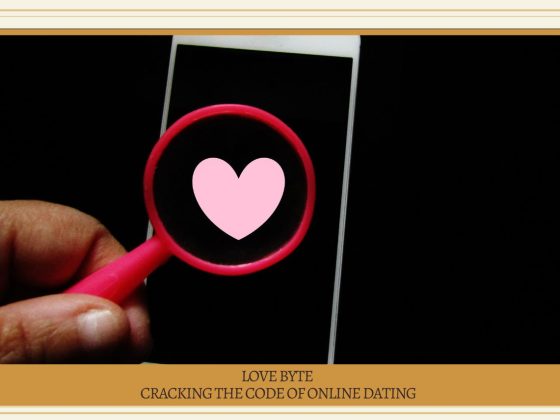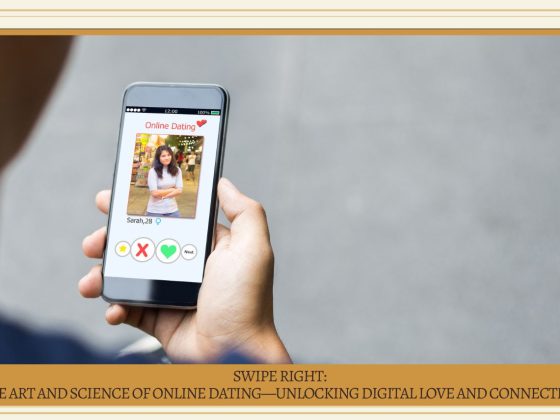In today’s fast-paced world, relationships have taken on a new dynamic. With the rise of technology and social media, traditional forms of dating and connecting have evolved. This article explores the concept of modern mingling and how it reshapes relationships in the 21st century. This article is for you if you struggle to navigate the modern dating scene. Get ready to discover the secrets of successful modern mingling.
What Is Modern Mingle?
Modern Mingle is a contemporary approach to forming connections and relationships in the 21st century. It encompasses various social activities and platforms facilitating meeting new people, making friends, and potentially finding romantic partners. By focusing on serendipity in the dating world, Modern Mingle hopes to revolutionise how we connect.
Modern Mingle is characterized by the use of technology and the internet to expand social networks. Online dating apps and websites play a significant role in this phenomenon, allowing individuals to browse profiles, chat, and arrange meet-ups. Social media platforms also contribute to Modern Mingle by providing opportunities to connect with others with similar interests.
What sets Modern Mingle apart is its emphasis on convenience and efficiency. With just a few clicks, individuals can access a wide pool of potential matches and filter their preferences to find compatible partners. This approach saves time and allows for more targeted interactions. Our unique dating dynamics make it easy for singles to find someone perfect.
Additionally, Modern Mingle promotes inclusivity and diversity, welcoming people of all backgrounds and orientations. It provides a platform for individuals to explore different types of relationships, whether looking for casual dating, long-term commitment, or simply expanding their social circle in a contest of modern connectivity.
Modern Mingle embraces a contemporary and efficient approach to building relationships, perfectly suited to today’s fast-moving and technology-focused lifestyle. For further insights, check here to explore their services and discover below how this method seamlessly transitions into understanding the Evolution of Relationships in the 21st Century.
The Evolution of Relationships in the 21st Century
Relationships are constantly evolving and adapting in the fast-paced and technologically-driven world of the 21st century. From the rise of online dating to the acceptance of non-traditional relationships, how we connect and form partnerships has drastically changed. This section will explore two key aspects of the evolving relationship landscape: the rise of online dating and the shift towards non-traditional relationships. These changes have reshaped how we view and approach relationships and sparked important conversations about the future of human connection.
1. The Rise of Online Dating
In the 21st century, online dating has become increasingly popular, revolutionising how people meet and form relationships. Here are some steps to navigate the rise of online dating:
- Choose the right platform: Research a reputable online dating platform that aligns with your preferences and goals.
- Create an appealing profile: Craft an honest and interesting profile highlighting your personality and what you want in a partner.
- Upload attractive photos: Select high-quality photos that represent you authentically and attract potential matches.
- Be proactive: Take the initiative to reach out to potential matches that interest you, or respond promptly to messages you receive.
- Stay safe: Prioritise your safety by being cautious with personal information, meeting in public places, and trusting your instincts.
- Manage expectations: Understand that online dating requires patience and perseverance. Not every match will lead to a long-term relationship.
- Communicate effectively: Engage in meaningful conversations and ask relevant questions to know potential partners better.
- Meet in person: If you feel connected, arrange a safe and comfortable meeting to see if the online chemistry translates to real life.
- Have an open mind: Be open to meeting different types of people and exploring new possibilities.
2. The Shift Towards Non-Traditional Relationships
Non-traditional relationships have become more prevalent in the 21st century. People are embracing various relationship structures that go beyond the traditional monogamous model. Here are some key aspects of the shift towards non-traditional relationships:
- Polyamory: Polyamorous relationships involve multiple partners with the knowledge and consent of all parties involved. This allows for emotional and romantic connections with more than one person simultaneously.
- Open Relationships: In open relationships, partners can have sexual or romantic connections with individuals outside of the primary relationship. This requires clear communication and agreed-upon boundaries.
- Relationship Anarchy: This philosophy emphasizes the importance of individual autonomy and rejects societal norms and expectations regarding relationships. It encourages creating unique relationship structures based on personal needs and desires.
The shift towards non-traditional relationships offers individuals freedom and flexibility to shape relationships that reflect their values and preferences. This evolution, however, poses challenges like communication and trust issues, managing multiple relationships, and confronting societal judgments. Embracing such relationships demands open-mindedness, effective communication, respect for boundaries, and a focus on consent. Addressing these challenges paves the way for exploring the benefits of Contemporary Modern Mingle.
What Are the Benefits of Contemporary Modern Mingle?
Traditional relationships have adopted new forms in today’s fast-paced and constantly changing society. The notion of modern mingle has arisen, providing individuals with a more adaptable and varied approach to discovering love and connection. In this section, we will discuss the advantages of embracing modern mingle. From greater flexibility and freedom to challenging social stigmas and stereotypes, we will explore how this contemporary relationship approach can enrich our lives.
1. Increased Flexibility and Freedom
Increased flexibility and freedom in modern relationships is an advantage individuals can embrace. Here are some steps to help you navigate this aspect of modern relationships:
- Open-mindedness: Be open to different types of relationships, such as polyamory or open relationships. This allows for more flexibility in exploring connections.
- Communication: Clear and consistent communication is crucial. Discuss expectations, boundaries, and desires with your partner(s) to ensure everyone is on the same page.
- Personal growth: Embrace personal growth and self-discovery. Modern relationships encourage individuals to explore their needs and desires, fostering a sense of freedom and self-expression.
- Embracing non-traditional roles: Challenge societal norms by embracing non-traditional relationship roles. This can include redefining gender roles or creating relationship dynamics that suit your unique circumstances.
Pro-tip: Remember that increased flexibility and freedom in modern relationships require responsibility and respect for yourself and others. Always prioritize consent and ensure all parties involved are comfortable and on board with the arrangement.
2. More Options for Finding Compatible Partners
In the modern dating landscape, people have more options than ever for finding compatible partners. Here are some steps to take advantage of these options:
- Expand your dating pool: Try different online dating platforms or apps to meet people outside your social circles.
- Take personality assessments: Utilise tools like compatibility quizzes or personality tests to find potential partners who share your values and interests.
- Join interest-based communities: Attend events or join groups centred around your hobbies or passions to meet like-minded individuals.
- Attend speed dating events: Participate in speed dating events to meet multiple potential partners in a short amount of time.
- Utilise matchmaking services: Consider using professional matchmaking services that match you with compatible partners based on your preferences.
With more options for finding compatible partners, it’s important to approach dating with an open mind and clear communication. Remember to prioritise your values and boundaries and be respectful of others.
3. Breaking Down Social Stigmas and Stereotypes
Breaking down social stigmas and stereotypes is essential to embracing modern mingling and redefining relationships in the 21st century. Individuals can foster a more inclusive and accepting society by challenging traditional norms and beliefs. Here are three steps to help break down social stigmas and stereotypes:
- Education and Awareness: Educate yourself about different relationship dynamics and lifestyles. Challenge your biases and preconceived notions by engaging in conversations, reading diverse perspectives, and attending workshops or seminars.
- Advocacy and Support: Stand up against discrimination and prejudice. Advocate for equal rights and representation for all types of relationships. Support organizations and initiatives that promote inclusivity and fight against social stigmas and stereotypes.
- Lead by Example: Be open and transparent about your own relationship choices. Share your experiences and encourage others to embrace diversity. Engage in respectful discussions and provide a safe space for others to express themselves without judgment.
A Pew Research Center study reveals that 50% of U.S. adults recognise a growing societal acceptance of diverse relationship structures. This shift highlights the evolving nature of personal connections, as explored in the previous sections. Now, we turn to explore the challenges of modern mingle.
What Are the Challenges of Modern Mingle?
In today’s fast-paced and interconnected world, traditional relationships have evolved into a new concept known as “modern mingle.” This section will discuss the challenges of this modern approach to relationships. From communication and trust issues to balancing multiple relationships, we will delve into the complexities of modern mingle. We will also address the societal pressure and judgment that individuals in modern mingle may face and how to navigate it.
1. Communication and Trust Issues
Communication and trust are crucial aspects of modern relationships. To navigate communication and trust issues effectively, follow these steps:
- Open and honest communication: Foster a safe space for open dialogue, sharing concerns, and expressing emotions.
- Active listening: Pay attention to your partner’s needs and validate their feelings to build trust and understanding.
- Establish boundaries: Clearly define and respect each other’s boundaries, ensuring both partners feel comfortable and secure.
- Build trust through consistency: Be reliable, follow through on commitments, and demonstrate trustworthiness over time.
- Address conflicts constructively: Approach conflicts with respect, empathy, and a willingness to find mutually beneficial solutions.
True story: Sarah and Chris faced communication and trust issues. They attended couples therapy to improve their communication skills and rebuild trust. Through therapy, they learned effective communication techniques and rebuilt trust by consistently showing up for each other. Today, Sarah and Chris have a stronger relationship built on open communication and trust.
2. Balancing Multiple Relationships
Balancing multiple relationships can be challenging, but with open communication and careful consideration, navigating this new landscape of modern mingling is possible. Here are some steps to help maintain balance:
- Set clear expectations: Define the boundaries and expectations for each relationship, including time commitments and level of emotional involvement.
- Effective time management: Prioritise and allocate quality time for each partner. Create schedules and be organised to ensure fairness and avoid neglecting any relationship.
- Honesty and transparency: Be open and honest with all partners about your intentions, feelings, and other relationships. Clear communication is key to maintaining trust.
- Self-care: Take care of yourself physically, emotionally, and mentally. Prioritise self-care to maintain your well-being and prevent burnout.
- Flexibility and adaptability: Relationships evolve, and it’s important to be flexible and adapt to the changing dynamics. Be open to renegotiating boundaries and expectations as needed.
Remember, balancing multiple relationships requires effort, understanding, and commitment from all involved parties. It’s important to constantly evaluate and communicate to ensure the well-being of everyone involved.
3. Dealing with Societal Pressure and Judgment
Dealing with societal pressure and judgement when embracing modern dating can be challenging, but there are steps you can take to navigate these obstacles:
- Reflect on your values and beliefs. Understand and be confident in your choices before engaging in non-traditional relationships.
- Build a support network: Surround yourself with friends and loved ones who accept and support your relationship choices.
- Communicate with your partner(s): Maintain open and honest communication to address any concerns or insecurities arising from societal pressure.
- Establish boundaries: Set clear boundaries within your relationships to ensure everyone involved feels comfortable and respected.
- Educate others: When faced with judgement or misconceptions, educate others about the diverse nature of relationships in the 21st century.
- Seek professional support if needed: If societal pressure becomes overwhelming, consider seeking guidance from therapists or relationship counsellors who can offer support.
How Can Someone Embrace Modern Mingle?
Traditional relationship dynamics are being challenged and redefined in today’s fast-paced world. With the rise of modern mingling, individuals are exploring various types of connections and dynamics beyond traditional romantic monogamous relationships. So, how can someone embrace this modern way of connecting? This section will discuss three key ways to embrace modern mingling: being open to different types of relationships, clear and consistent communication, respecting boundaries, and prioritising consent. Let’s delve into each sub-section and explore the importance of these aspects in modern relationships.
1. Be Open to Different Types of Relationships
In the era of Modern Mingle, being open to different types of relationships is crucial for personal growth and navigating the ever-evolving dating landscape. Here are some steps to embrace different types of relationships:
- Reflect on your values and desires: Understand what you truly want from a relationship and be open to exploring different possibilities.
- Expand your mindset: Challenge societal norms and stereotypes surrounding relationships. Recognise that there is no one-size-fits-all approach to love and connection.
- Learn about different relationship styles: Educate yourself on various relationship styles like polyamory, open relationships, or non-monogamy. Understand their dynamics, boundaries, and communication requirements.
- Communicate openly: Clearly express your expectations, needs, and boundaries with your partners. Effective communication is essential for any relationship to thrive.
- Embrace diversity: Accept and appreciate the differences in others’ relationships. Respect their choices and foster an inclusive mindset.
- Adapt and evolve: Relationships can change over time. Stay open-minded and willing to adapt as your needs and desires evolve.
2. Communicate Clearly and Consistently
Clear and consistent communication is essential in modern relationships to ensure understanding, trust, and mutual respect. Here are some steps to help you communicate effectively:
- Active Listening: Pay full attention to your partner, listen without interruption, and show empathy.
- Express Yourself Clearly: Use clear and concise language to convey your thoughts and feelings. Avoid assumptions or vague statements.
- Be Honest and Transparent. Openly share your needs, desires, and boundaries. Be truthful about your intentions and expectations.
- Practice Open Dialogue: Encourage open and non-judgemental conversations. Discuss any concerns or issues promptly to prevent misunderstandings or resentments from building up.
- Use Non-Verbal Cues: Pay attention to body language, facial expressions, and tone of voice. These non-verbal cues can provide additional insights into your partner’s emotions.
- Validate and Validate: Acknowledge your partner’s feelings and perspectives, even if you don’t agree. Avoid dismissive or belittling responses.
- Regular Check-Ins: Schedule regular check-ins to discuss the state of your relationship and any changes and to gauge each other’s satisfaction and needs.
Remember, clear and consistent communication is a continuous process requiring both partners’ effort. It’s the foundation for building and maintaining healthy and fulfilling modern relationships.
3. Respect Boundaries and Prioritise Consent
Respecting boundaries and prioritising consent are essential in embracing modern socialising and maintaining healthy relationships.
- Establish clear communication: openly discuss boundaries, expectations, and consent with all partners.
- Consent is ongoing: ensure that consent is ongoing and enthusiastic, both verbally and non-verbally, throughout all interactions.
- Respect personal boundaries: Understand and respect each individual’s physical, emotional, and personal limits.
- Active listening: Listen to your partners’ needs, desires, and concerns and address them accordingly.
- Consent education: educate yourself and your partners about consent, including discussions on enthusiastic consent, affirmative consent, and the importance of consent in various aspects of relationships.
By respecting boundaries and prioritising consent, individuals can foster a culture of mutual respect, trust, and empowerment in their relationships.
As the late 20th century unfolded, consent became widely recognized, influenced by social movements advocating for gender equality and individual rights. This pivotal shift highlighted the importance of respecting personal boundaries, making consent a cornerstone of modern relationships and fostering healthy partner interactions. Looking ahead, this evolving understanding sets the stage for exploring the future of relationships.
What Does the Future of Relationships Look Like?
In the 21st century, relationships are undergoing significant changes and transformations. The future of relationships is taking on a whole new shape, influenced by various factors. Here are some key aspects to consider:
- Non-traditional relationships: The future holds a greater acceptance of diverse relationship structures, including polyamory, open relationships, and long-distance partnerships.
- Technology: With technological advancements, relationships are becoming more interconnected. Virtual communication, online dating, and social media shape how people meet, connect, and maintain relationships.
- Emotional intelligence: The future of relationships emphasizes emotional intelligence, empathy, and effective communication. People are focusing on building deeper and more meaningful connections with their partners.
- Gender and sexuality: Society is becoming more inclusive and accepting of diverse gender identities and sexual orientations, leading to a more diverse range of relationships.
- Work-life balance: As people strive for a better work-life balance, relationships evolve to accommodate individual needs and aspirations.
In the evolving landscape of relationships, it is essential to prioritize open and honest communication, deepen emotional intelligence, and respect the diversity of each partnership. These practices enhance interpersonal connections and prepare us to navigate the complexities of modern relationships. Understanding and embracing these new standards becomes crucial for fostering meaningful interactions as we adapt to these changing norms. This approach seamlessly transitions into our final thoughts on embracing the new relationship norms.
Final Thoughts: Embracing the New Norms in Relationships
The landscape of relationships is evolving dynamically as technology, societal norms, and personal expectations interweave to redefine how we connect. The future of relationships, enriched by technological advancements and a broadening acceptance of diverse relationship dynamics, promises greater inclusivity and deeper connections. Embracing this future requires adaptability, open communication, and a commitment to understanding how people relate to one another. As we look forward, it’s clear that the journey of relationships will continue to evolve, offering new ways to experience love, companionship, and interpersonal growth in the 21st century.



